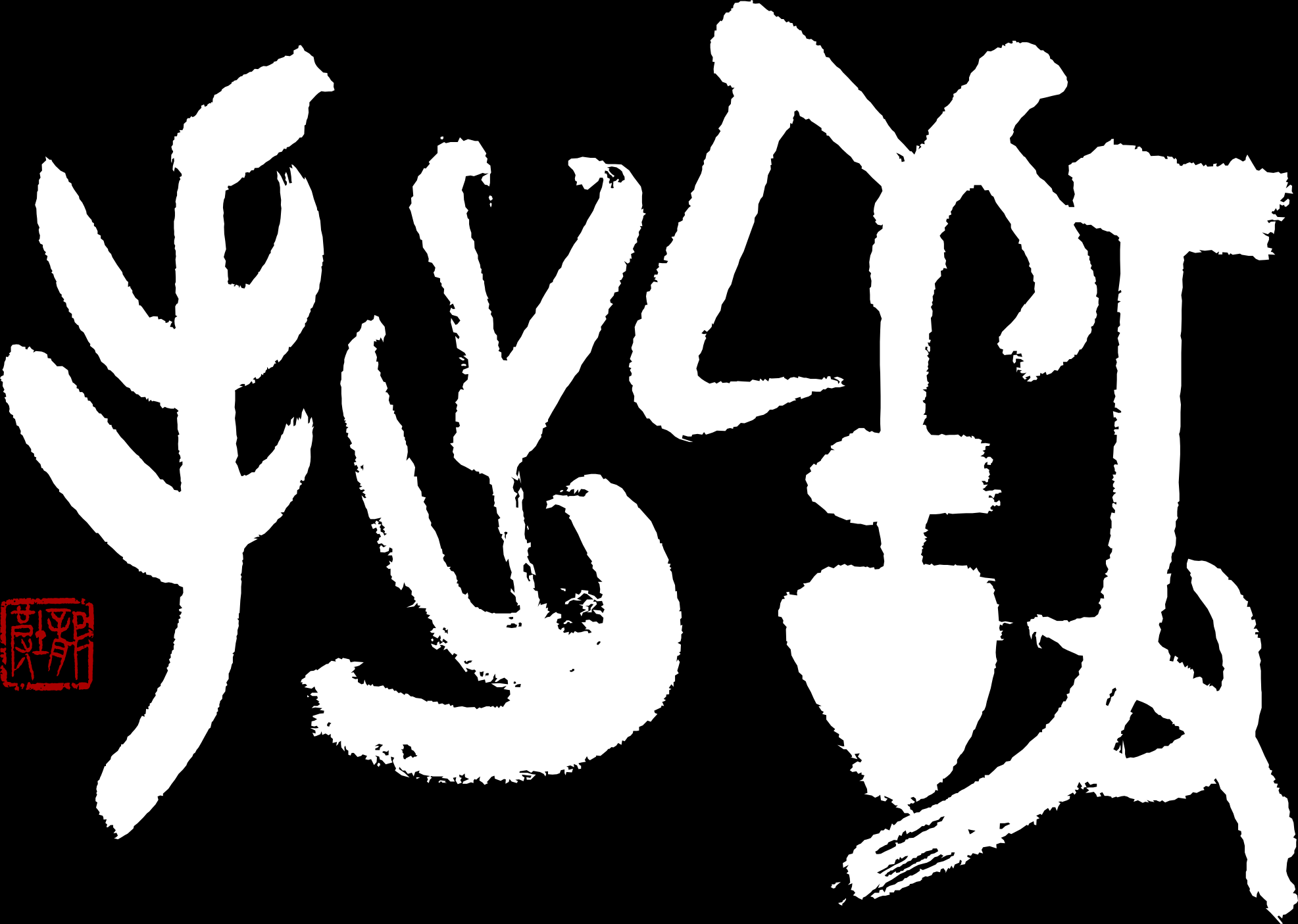| Get Ready! | Listen to the Japanese repeatedly and practice until you can say it smoothly. |
| ① | Repeat each question and answer three times. |
| ② | Your teacher will ask you the questions. Give your own answers. |
| ③ | Ask your teacher the questions and listen to their answers. |
| Pay special attention to the keywords. |
| 001 |  |
| なん | |
| na·n | |
| Question 🔊 | Model answer 🔊 |
|
表示 ▶
漢: お名前は何ですか? 漢: 俺の名前はボッブです。 |
|
| 002 |  |
| はじめまして | |
| ha·ji·me·ma·shi·te | |
| Question 🔊 | Model answer 🔊 |
|
表示 ▶
漢: 初めまして。よろしくお願いします。 漢: 初めまして。よろしくお願いします。 |
|
| 003 |  |
| いくつ | |
| i·ku·tsu | |
| Question 🔊 | Model answer 🔊 |
|
表示 ▶
漢: おいくつですか? 漢: 25歳です。 |
|
| 004 |  |
| げんき | |
| ge·n·ki | |
| Question 🔊 | Model answer 🔊 |
|
表示 ▶
漢: お元気ですか? 漢: はい。元気です。 |
|
| 005 |  |
| あなた | |
| a·na·ta | |
| Question 🔊 | Model answer 🔊 |
|
表示 ▶
漢: あなたはケンですか? 漢: いいえ。俺の名前はボッブです。 |
|
| 006 |  |
| すき | |
| su·ki | |
| Question 🔊 | Model answer 🔊 |
|
表示 ▶
漢: 犬が好きですか? 漢: はい。犬が好きです。 |
|
| 007 |  |
| あなた | |
| a·na·ta | |
| Question 🔊 | Model answer 🔊 |
|
表示 ▶
漢: あなたは日本人ですか? 漢: いいえ。俺はイギリス人です。 |
|
| 008 |  |
| すき | |
| su·ki | |
| Question 🔊 | Model answer 🔊 |
|
表示 ▶
漢: 猫が好きですか? 漢: いいえ。猫が好きではありません。 |
|
| 009 |  |
| できます | |
| de·ki·ma·su | |
| Question 🔊 | Model answer 🔊 |
|
表示 ▶
漢: サッカーができますか? 漢: はい。サッカーができます。 |
|
| 010 |  |
| できます | |
| de·ki·ma·su | |
| Question 🔊 | Model answer 🔊 |
|
表示 ▶
漢: 水泳ができますか? 漢: いいえ。水泳ができません。 |
|
| Activity | Guess the question – part 1 |
| ① | Your teacher will say their own answers. Try to guess the questions. |
| ② | How many can you guess correctly in 30 seconds? |
| 001 |  |
| なん | |
| na·n |
| 002 |  |
| はじめまして | |
| ha·ji·me·ma·shi·te |
| 003 |  |
| いくつ | |
| i·ku·tsu |
| 004 |  |
| げんき | |
| ge·n·ki |
| 005 |  |
| あなた | |
| a·na·ta |
| 006 |  |
| すき | |
| su·ki |
| 007 |  |
| あなた | |
| a·na·ta |
| 008 |  |
| すき | |
| su·ki |
| 009 |  |
| できます | |
| de·ki·ma·su |
| 010 |  |
| できます | |
| de·ki·ma·su |
|
Timer
30
|
|
Counter
0
|
| Activity | Guess the question – part 2 |
| ① | Now say your own answers. Your teacher will try to guess the questions. |
| ② | How many can you guess correctly in 30 seconds? |
| Listen In | Listen to the dialogue and answer the following questions. |
| ① | Can this person swim? |
| ② | How old is this person? |
| ③ | Does this person like cats? |
| Fill In ① | Use rōmaji to fill in the missing words in the questions and your own answers. |
| Q001 | o-na·ma·e wa [ ] de·su [ ]? |
| A001 | o·re no [ ] wa [ ] de·su。 |
| Q002 | [ ]。yo·ro·shi·ku o·ne·ga·i·shi·ma·su。 |
| A002 | ha·ji·me·ma·shi·te。[ ] o·ne·ga·i·shi·ma·su。 |
| Q003 | o-i·ku·tsu [ ] ka? |
| A003 | [ ]-sa·i de·su。 |
| Q004 | o-[ ] de·su ka? |
| A004 | [ ]。ge·n·ki [ ]。 |
| Q005 | a·na·ta [ ] ke·n de·su ka? |
| A005 | i·i·e。[ ] na·ma·e wa [ ] de·su。 |
| Q006 | i·nu ga [ ] de·su ka? |
| A006 | [ ]。i·nu ga su·ki [ ]。 |
| Q007 | [ ] wa ni·ho·n-ji·n de·su ka? |
| A007 | i·i·e。o·re wa [ ]-ji·n [ ]。 |
| Q008 | ne·ko [ ] su·ki de·su [ ]? |
| A008 | [ ]。ne·ko ga su·ki [ ]。 |
| Q009 | sa·kkā [ ] de·ki·ma·su [ ]? |
| A009 | [ ]。sa·kkā ga [ ]。 |
| Q010 | su·i·e·i ga [ ] ka? |
| A010 | [ ]。su·i·e·i ga [ ]。 |
| Fill In ② | Now do the same using hiragana. |
| Q001 | お-なまえ は [ ] です [ ]? |
| A001 | おれ の [ ] は [ ] です。 |
| Q002 | [ ]。よろしく おねがいします。 |
| A002 | はじめまして。[ ] おねがいします。 |
| Q003 | お-いくつ [ ] か? |
| A003 | [ ]-さい です。 |
| Q004 | お-[ ] です か? |
| A004 | [ ]。げんき [ ]。 |
| Q005 | あなた [ ] けん です か? |
| A005 | いいえ。[ ] なまえ は [ ] です。 |
| Q006 | いぬ が [ ] です か? |
| A006 | [ ]。いぬ が すき [ ]。 |
| Q007 | [ ] は にほん-じん です か? |
| A007 | いいえ。おれ は [ ]-じん [ ]。 |
| Q008 | ねこ [ ] すき です [ ]? |
| A008 | [ ]。ねこ が すき [ ]。 |
| Q009 | さっかー [ ] できます [ ]? |
| A009 | [ ]。さっかー が [ ]。 |
| Q010 | すいえい が [ ] か? |
| A010 | [ ]。すいえい が [ ]。 |
| Zoom In | Substitute the words and talk about these topics. |
| Topic 1 | 動物・どうぶつ・dō·bu·tsu = Animals |
| 006 |  |
| すき | |
| su·ki | |
| Question 🔊 | Model answer 🔊 |
| Question pattern |
| いぬ が すき です か? |
| i·nu ga su·ki de·su ka? |
| Answer pattern 1 |
| はい。いぬ が すき です。 |
| ha·i。 i·nu ga su·ki de·su。 |
| Answer pattern 2 |
| いいえ。いぬ が すき で は ありません。 |
| i·i·e。i·nu ga su·ki de wa a·ri·ma·se·n。 |
| Variant |
| はい。いぬ が だいすき です。 |
| ha·i。i·nu ga da·i·su·ki de·su。 |
| Vocabulary | ||
| 1 | いぬ・i·nu = dog(s) | 挿入 |
| 2 | ねこ・ne·ko = cat(s) | 挿入 |
| 3 | さかな・sa·ka·na = fish | 挿入 |
| 4 | とり・to·ri = bird(s) | 挿入 |
| 5 | うし・u·shi = cow(s) | 挿入 |
| 6 | うま・u·ma = horse(s) | 挿入 |
| 7 | ひつじ・hi·tsu·ji = sheep | 挿入 |
| 8 | とら・to·ra = tiger(s) | 挿入 |
| 9 | くま・ku·ma = bear(s) | 挿入 |
| 10 | へび・he·bi = snake(s) | 挿入 |
|
Timer
|
30
|
|
|
Counter
|
0
|
| Notes | Japanese nouns are both singular and plural. For example, 犬・いぬ・inu can mean “dog” or “dogs.” We can usually understand whether a speaker is referring to just one dog or several dogs from the context.
If we need to make it clear that we are talking about several things, we can use counters. For some nouns, we can repeat the noun to make it plural. |
| Topic 2 | スポーツ・すぽーつ・su·pō·tsu = Sports |
| 009 |  |
| できます | |
| de·ki·ma·su | |
| Question 🔊 | Model answer 🔊 |
| Question pattern |
| さっかー が できます か? |
| sa·kkā ga de·ki·ma·su ka? |
| Answer pattern 1 |
| はい。さっかー が できます。 |
| ha·i。sa·kkā ga de·ki·ma·su。 |
| Answer pattern 2 |
| いいえ。さっかー が できません。 |
| i·i·e。sa·kkā ga de·ki·ma·se·n。 |
| Variant |
| はい。さっかー が とくい です。 |
| ha·i。sa·kkā ga to·ku·i de·su。 |
| Vocabulary | ||
| 1 | さっかー・sa·kkā = soccer | 挿入 |
| 2 | すいえい・su·i·e·i = swimming | 挿入 |
| 3 | てにす・te·ni·su = tennis | 挿入 |
| 4 | やきゅう・ya·kyū = baseball | 挿入 |
| 5 | ぼくしんぐ・bo·ku·shi·n·gu = boxing | 挿入 |
| 6 | じゅうどう・jū·dō = judo | 挿入 |
| 7 | くりけっと・ku·ri·ke·tto = cricket | 挿入 |
| 8 | すもう・su·mō = sumo | 挿入 |
| 9 | あめふと・a·me·fu·to = American football | 挿入 |
| 10 | たっきゅう・ta·kkyū = table tennis | 挿入 |
|
Timer
|
30
|
|
|
Counter
|
0
|
| Notes | Many sports have katakana names (imported from English and other foreign languages). Sports which became popular in Japan early in the 20th century, such as baseball and table tennis, have Japanese (kanji) names. Sports which did not become popular until more recently have katakana names.
Long imported words or phrases are often shortened in Japanese to make them easier to say. |
| Talk More Technique | ① Showing interest |
| そう か。 |  |
| sō ka。 | |
| 🔊 | |
| I see. |
| すげー! |  |
| su·gē! | |
| 🔊 | |
| Wow! |
| Sample Dialog | |||
| A: | いぬ が すき です か? | A: | i·nu ga su·ki de·su ka? |
| B: | はい。いぬ が すき です。 | B: | ha·i。i·nu ga su·ki de·su。 |
| A: | そう か。ヘビ が すき です か? | A: | sō ka。he·bi ga su·ki de·su ka? |
| B: | はい。ヘビ が すき です。 | B: | ha·i。he·bi ga su·ki de·su。 |
| A: | すげー! | A: | su·gē! |
| Talk Longer | Use the questions in this unit, the patterns in the Zoom In section, and the Talk More Technique to have a longer conversation with your teacher. |
| なん |  |
| na·n |
| はじめまして |  |
| ha·ji·me·ma·shi·te |
| いくつ |  |
| i·ku·tsu |
| げんき |  |
| ge·n·ki |
| あなた |  |
| a·na·ta |
| すき |  |
| su·ki |
| あなた |  |
| a·na·ta |
| すき |  |
| su·ki |
| できます |  |
| de·ki·ma·su |
| できます |  |
| de·ki·ma·su |
| そう か。 |  |
| sō ka。 |
| すげー! |  |
| su·gē! |
|
Timer
|
2:00
|
|
|
|
| Write Up | Use the questions and answer patterns in this unit to write about your teacher. |
| ① | Make notes of your teacher’s answers to the questions in this unit. |
| ② | Then, try to write the full sentences using hiragana. |
| Subject | he ~ : | 彼は~・かれ は~・ka·re wa ~ | ||
| she ~ : | 彼女は~・かのじょ は~・ka·no·jo wa ~ | |||
| Possessive adjective | his ~ : | 彼の~・かれ の~・ka·re no ~ | ||
| her ~ : | 彼女の~・かのじょ の~・ka·no·jo no ~ |
| Q001 | |
| Notes: | [ ] na·ma·e wa [ ] de·su。 |
| In hiragana: | |
| Q003 | |
| Notes: | [ ] [ ]-sa·i de·su。 |
| In hiragana: | |
| Q006 | |
| Notes: | [ ] i·nu ga su·ki [ ]。 |
| In hiragana: | |
| Q007 | |
| Notes: | [ ] [ ]-ji·n de·su。 |
| In hiragana: | |
| Q008 | |
| Notes: | [ ] ne·ko ga su·ki [ ]。 |
| In hiragana: | |
| Q009 | |
| Notes: | [ ] sa·kkā ga [ ]。 |
| In hiragana: | |
| Q010 | |
| Notes: | [ ] su·i·e·i ga [ ]。 |
| In hiragana: |
